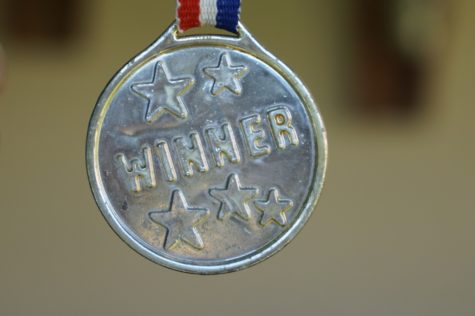CAMBRIDGE, England — Owners of chic boutiques that carry designer labels or high-end products may be able to boost sales by following a simple strategy: find a way to give your clients the satisfaction of winning.
That’s because scientists have found the taste of success wets our taste buds for a more lavish lifestyle.

A new study by researchers from the Universities of Cambridge, Oxford, Vienna, and the London Business School showed males who were told they won a competitive Tetris game were more likely to place a high value on expensive status symbols. And while previous studies have suggested links to increased testosterone in such situations, this research showed no hormonal correlation to the spendy behavior.
“Winning a competition, which we know is associated with feeling a sense of a higher social status, seems to drive individuals towards conspicuous consumption, making them more willing to pay for luxury items,” says study leader Yin Wu, who was a PhD student at Cambridge during the trial, in a press release.
Wu said the experiment also tested the participants’ testosterone levels, which the researchers expected would be elevated after winning.
However, Wu, now based at Shenzhen University in China, says, “we were surprised that testosterone levels did not change with winning or losing, and so testosterone does not seem to be driving the effects on conspicuous consumption.”
Involving 166 male University of Cambridge students, the study saw the students playing a Tetris game that they believed had them competing against other people. In reality, they were randomly assigned as winners or losers of the game.
Once assigned their “winner” or “loser” status, the participants were asked how much they would pay for goods such as luxury cars. The study showed that winners were willing to spend significantly more than losers.
This finding was further confirmed with items that were actually available in the lab, such as high status Harvard shirts and memorabilia, compared to lesser known state-college merchandise.
Participants were also asked to attribute positive and negative terms to the items, a task researchers said is used in the field of consumer psychology to reveal attitudes that participants may otherwise be unwilling to make public. This test also showed the rigged Tetris “winners” placing a higher value on the high status goods than “losers”.
Another component of the experiment had subjects participate in a classic game in which one of two game participants is given a sum of money to distribute. The person with the money has to make a proposal for how to divide it up between the two participants. If the other party refuses the deal, both walk away empty handed. Designed to test people’s response to fair or unfair treatment, the study also found that the rigged Tetris “winners” were less likely to take unfair deals and just walk away empty handed.
Finally, as the findings on testosterone levels were at odds with their hypothesis and previous studies, the researchers said further work was necessary to test correlations between hormone levels and competition.
The full study was established this month in the journal Scientific Reports.
